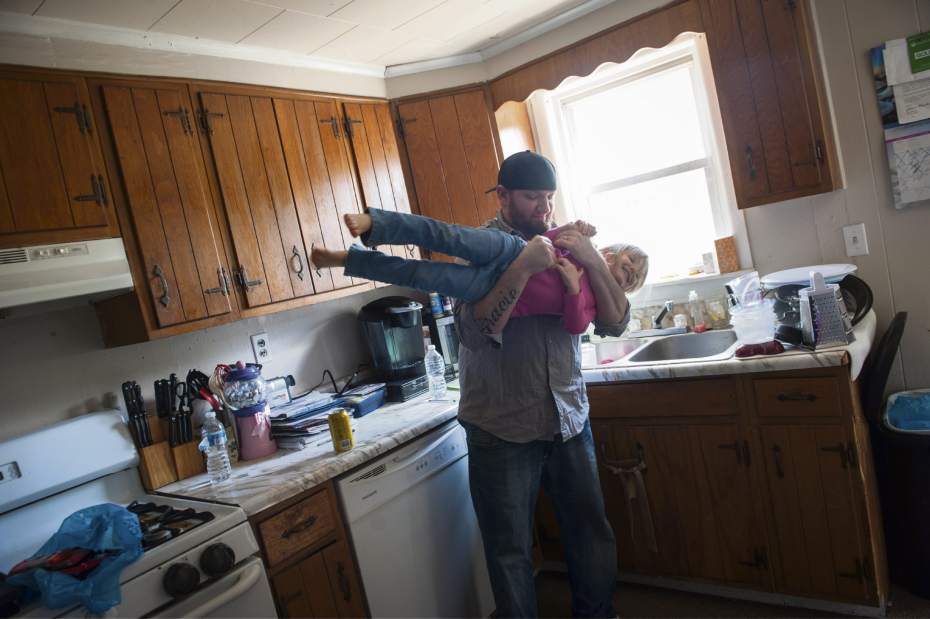Nicki Bunting sits with her children, Connor, 2, and Cooper, 7 months, at the grave of her husband and their father, Captain Brian Bunting.
Photo credit: Justin Merriman
It is Father's Day in Section 60 of Arlington National Cemetery, where white-gloved hands delivered the war dead from Iraq and Afghanistan. Families bring folding chairs and spread picnic lunches on blankets over graves. They place balloons, cards, flowers, photographs, crayon drawings at the base of the headstones; at one, a McDonald's cheeseburger, and at another, a small bottle of bourbon. Children weave through the white rows, some at play, others shuffling slowly, their eyes on the thick grass.
The families mingle as neighbors, unafraid that someone will hurt their children by asking the wrong question. Here, even the youngest know what to leave unsaid.
The collapse of America's coal industry is undermining one of the last bastions of the post-World-War-II middle class. Its family-sustaining pay, long-term job security and low barriers to entry seem almost an anachronism -- unless you're one of the thousands of men and women who built their lives on its promise.
Ted and Jessica Fink moved from Florida to Western Pennsylvania as a young married couple so Ted could get the kind of mining job that had sustained generations of Jessica's family. Then the mine closed, taking with it the plans and the home they'd made.
Former coal miner Ted FInk takes a break from packing up his home to play with his daughter, Gracie, 3.
Photo credit: Stephanie Strasburg
An Amish girl looks through the window of a buggy riding in the funeral procession for four of six Amish girls executed in a one-room schoolhouse in Lancaster County.
Photo credit: Guy Wathen
Charles Carl Roberts IV walked into a one-room schoolhouse full of Amish children. He carried three firearms, zip ties and lubricating jelly. He let the boys go, then tied up the girls. When police surrounded the schoolhouse, he began executing these children, one by one.
A people who had tried to let society go about its business without them suddenly found themselves the focus of its transfixed attention. The world discovered a quiet corner of Lancaster County, Pa. at its darkest hour.
This is the day the strangers left.


